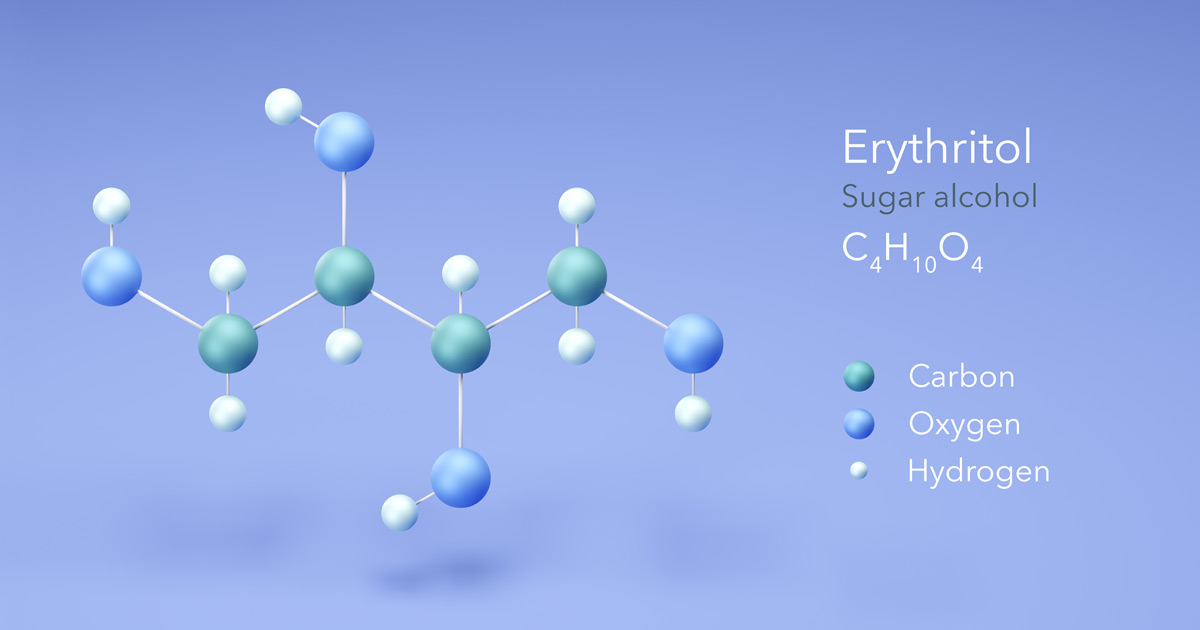Is Erythritol Safe?
Health writers have been talking pro and con about a new study that was published about erythritol, a commonly used sugar alcohol. The paper demonstrated an increased risk of major adverse cardiovascular events (MACE) if a person had too much of the sweetener in their bloodstream. In that sugar alcohols are found in more and more products, especially those geared toward the ketogenic diet, are people really at risk for a major cardiac event, or worse, death? Let’s take a look at the results of the study.
The researchers used data collected during consecutive heart catheterizations at the Cleveland Clinic, termed the Discovery cohort, a U.S. population extracted from a large genetic study conducted by the Cleveland Clinic, called U.S. validation cohort, and a European validation cohort similar to the one selected from the population in the Discovery cohort. The two key elements were that all subjects had blood samples drawn that could be studied and all were tracked for at least three years. Researchers developed tests to specifically identify the quantity of erythritol found in subjects’ blood.
The researchers separated the subjects into quartiles and compared those with the lowest levels of erythritol with those with the most. In all three cohorts, with blood samples taken in different parts of the U.S. and Europe and over different years, the highest quartile had a significant increased risk of MACE in over three years compared to the lowest quartile—two to three times as high.
In Saturday’s Memo, I’m going to review the major issue with the study. I’ll also post a Straight Talk on Health for Members and Insiders that takes a deeper dive into all the issues surrounding the study and whether this is something to be concerned about or not.
What are you prepared to do today?
Dr. Chet
Reference: Nature Medicine. 2023. https://www.nature.com/articles/s41591-023-02223-9





